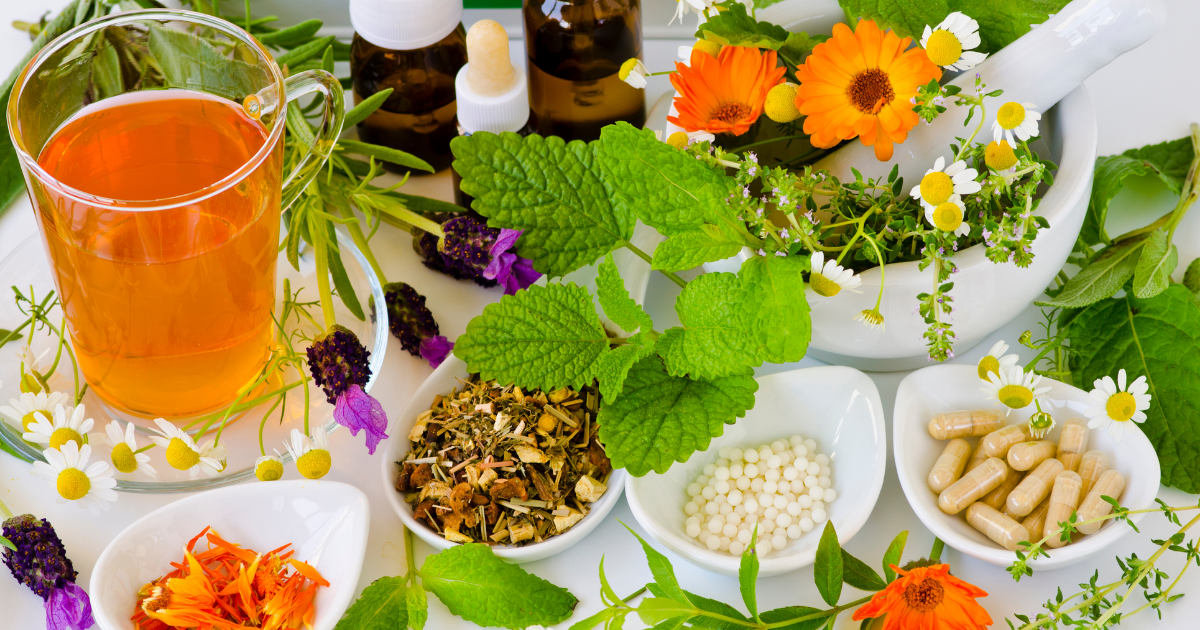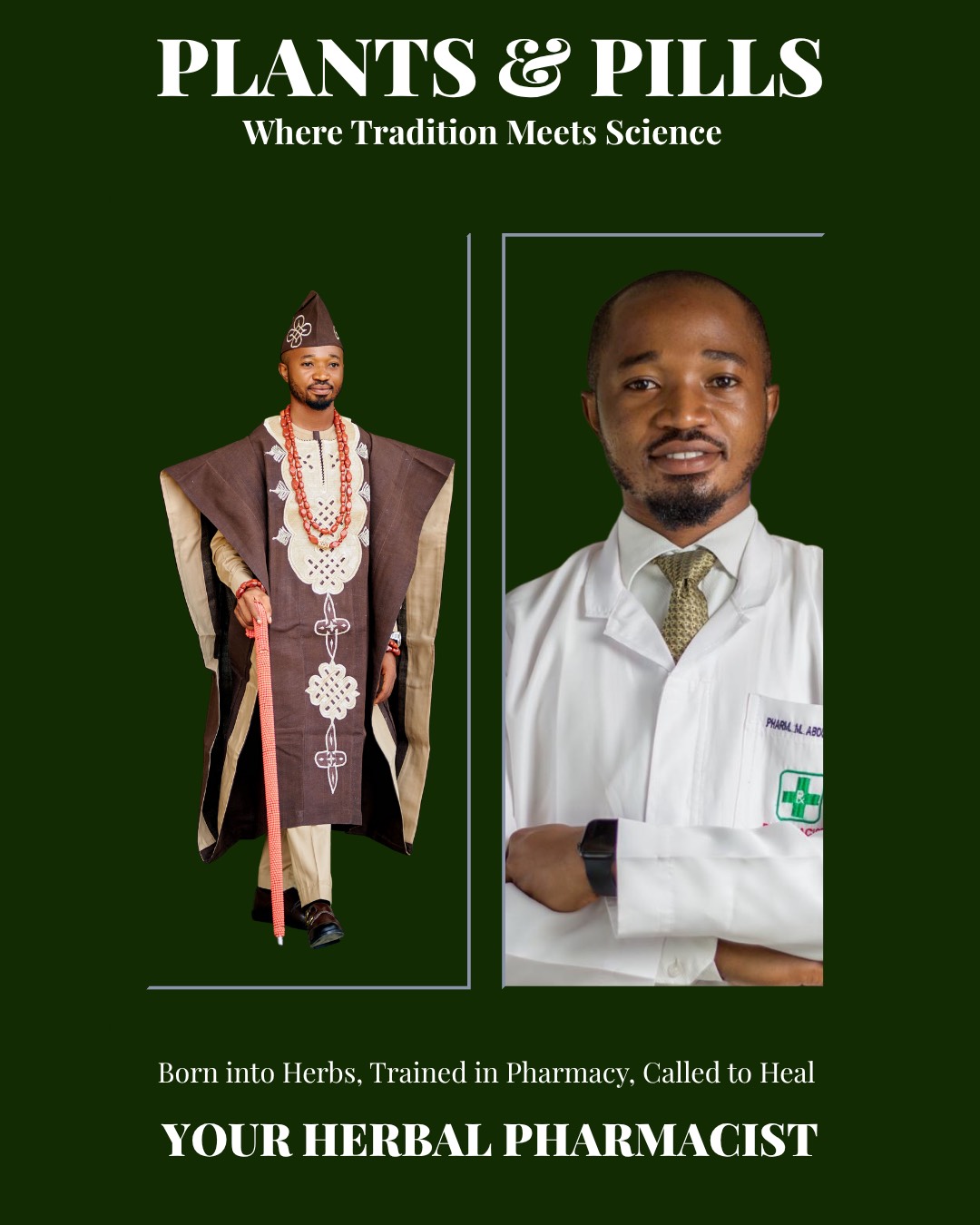Currently Empty: ₦0.00

In a world where the rise of modern medicine continues to improve and save lives, there remains a quiet but powerful resurgence of interest in traditional herbal remedies, especially across Africa. These remedies, passed down through generations, are rooted in our culture and connection to the land. But what happens when modern science and traditional herbal wisdom meet? The result can be a beautiful synergy—if done safely and correctly.
At Plants and Pills Therapy Center, we specialize in harmonizing these two worlds, blending the best of herbal therapy with the precision of modern medicine. However, combining herbs and medications is not always as simple as it seems. Done improperly, it can lead to complications; done well, it can enhance healing and lead to better outcomes. Let’s explore how to safely harness the power of synergy between herbs and modern medications.
The Healing Power of African Herbs
Africa is home to an incredible variety of healing herbs, each with unique properties that have been used for centuries. Some of these herbs have proven therapeutic effects that align well with modern health challenges, from managing blood sugar in diabetes to reducing inflammation in arthritis. For example:
- Bitter leaf (Vernonia amygdalina): Common in West African communities, bitter leaf is known for its anti-inflammatory, antidiabetic, and antimicrobial properties. Traditionally, it’s used in treating malaria, stomach disorders, and high blood pressure.
- Scent leaf (Ocimum gratissimum): A staple in many African households, scent leaf is used for digestion, respiratory health, and regulating blood sugar levels.
- Moringa (Moringa oleifera): Known as the “miracle tree,” moringa has widespread benefits, including reducing cholesterol, managing diabetes, and acting as an antioxidant.
These herbs offer incredible healing potential on their own, but what happens when they’re used alongside prescribed medications? This is where the synergy—or, sometimes, the risk—begins to manifest.
Understanding Herb-Drug Interactions
When combining herbs and pharmaceutical medications, it’s crucial to be aware of herb-drug interactions. Some herbs can enhance the effectiveness of modern drugs, while others might reduce their efficacy or cause side effects. A common misconception is that because herbs are natural, they are automatically safe to mix with anything. Unfortunately, this is not always the case.
For example, garlic, a common African herb, is widely known for its ability to lower blood pressure and cholesterol levels. However, if taken with anticoagulants (blood-thinning medications), garlic can increase the risk of bleeding. Similarly, St. John’s Wort, used for mood regulation, can interfere with antidepressants or birth control pills, causing them to be less effective.
At Plants and Pills Therapy Center, our goal is to help patients understand how to safely combine herbal remedies with modern medications. This delicate balance is key to maximizing health outcomes without risking negative interactions.
Why Synergy Matters: The Benefits of Safe Combination
When herbs and medications are properly combined, the benefits can be significant. Rather than seeing them as opposing forces, we can view modern medicine and herbal therapy as complementary—working together for the greater good.
- Enhanced Healing: Combining certain herbs with medications can boost the overall effect of the treatment. For example, moringa can help manage blood sugar levels in diabetic patients already on medications, allowing for better control of the condition.
- Reduction of Side Effects: Some herbs can help mitigate the side effects of pharmaceutical drugs. For instance, ginger, a popular African herb, can help alleviate nausea caused by chemotherapy treatments in cancer patients.
- Lowering Medication Dosages: In some cases, herbal remedies can allow for lower dosages of prescription drugs, reducing the risk of side effects. For example, using bitter leaf to regulate blood pressure may allow patients to take a lower dose of antihypertensive medication.
Key African Herbs and Their Safe Use with Modern Medications
1. Bitter Leaf (Vernonia amygdalina)
- Health Benefits: Known for its bitter taste, it’s used to manage blood sugar levels, reduce inflammation, and boost the immune system.
- Use with Medications: It’s important to consult a healthcare provider before combining bitter leaf with diabetes medications, as it can enhance the blood sugar-lowering effect, potentially leading to hypoglycemia (dangerously low blood sugar levels).
2. Scent Leaf (Ocimum gratissimum)
- Health Benefits: Often used for treating digestive issues, it also helps in managing respiratory infections and lowering blood sugar.
- Use with Medications: Scent leaf can safely complement certain diabetes medications, but it’s essential to monitor blood sugar levels closely to avoid any adverse reactions.
3. Garlic (Allium sativum)
- Health Benefits: Garlic is a potent antimicrobial and cholesterol-lowering herb used across Africa.
- Use with Medications: While garlic can lower blood pressure, patients on blood-thinning medications should be cautious as garlic can increase the risk of bleeding.
4. Moringa (Moringa oleifera)
- Health Benefits: Known for its extensive nutritional profile, moringa supports cardiovascular health, diabetes management, and immune function.
- Use with Medications: Moringa can safely be used with antihypertensive and antidiabetic medications but should be used under professional supervision to avoid excessively low blood pressure or blood sugar levels.
Precautions for Combining Herbs and Modern Medicine
While the synergy between herbs and modern medications is powerful, there are a few precautions that need to be followed to ensure safe and effective results:
- Consult a Professional: Always seek guidance from an expert before combining any herbs with your medications. At Plants and Pills Therapy Center, we offer personalized consultations to assess your unique needs and ensure that the combination of therapies is both safe and effective.
- Start Slow: If you’re new to herbal remedies, introduce them gradually while continuing your prescribed medications. Monitor for any unusual side effects and adjust dosages accordingly with professional advice.
- Keep Your Healthcare Provider Informed: Whether you’re working with a doctor, pharmacist, or herbalist, it’s crucial that all your healthcare providers are aware of the herbs and medications you’re taking.
- Stay Informed: Not all herbs are created equal, and their interactions with drugs may vary based on factors like dosage, frequency, and the form in which the herb is consumed (e.g., powder, tea, or extract). Stay educated and informed through reliable sources.
Embracing Synergy at Plants and Pills Therapy Center
At Plants and Pills Therapy Center, we are dedicated to helping you navigate the complex world of herbal and modern medicine safely. As experts in both fields, we specialize in integrating these two forms of therapy to bring out the best in each. Whether you’re managing a chronic condition or simply seeking to improve your health, we provide the knowledge and support needed to ensure your treatment plan is safe, effective, and personalized for you.
Ready to explore the power of synergy? Contact us today for a consultation and discover how we can help you harmonize the power of plants with modern pills to achieve optimal health.



